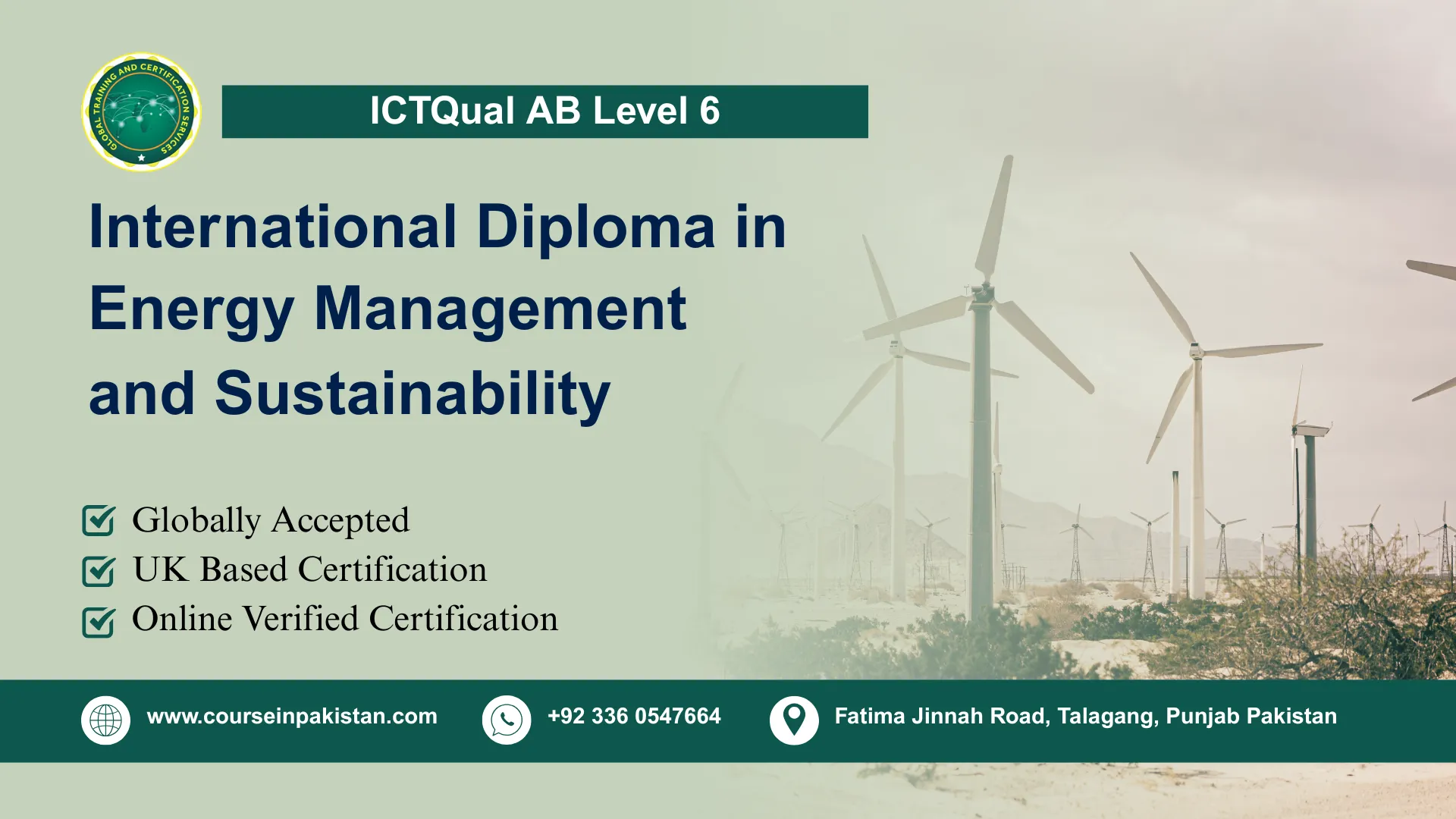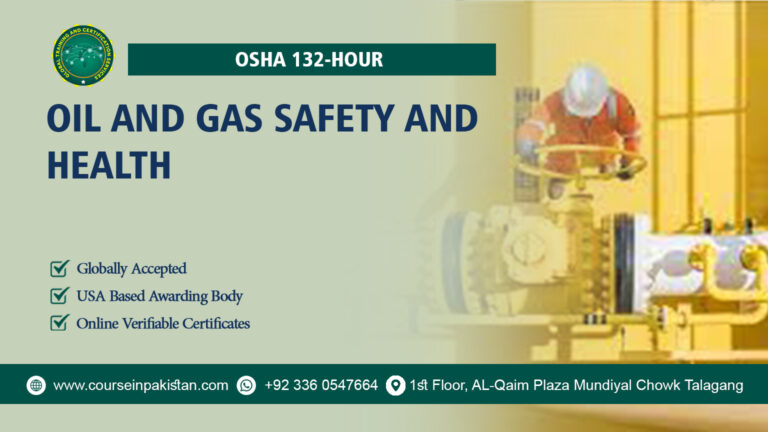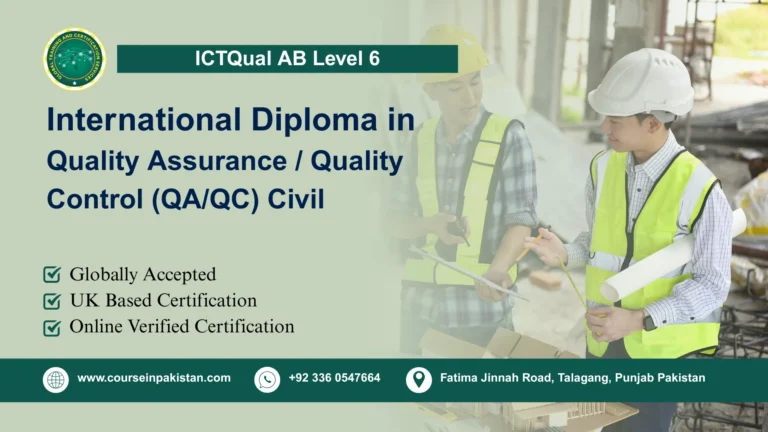
This diploma equips learners with the skills to analyze energy systems, implement renewable technologies, and manage energy projects in compliance with global environmental standards. Graduates will be prepared to take on critical roles in organizations, contribute to sustainable practices, and influence policy and strategy for long-term energy efficiency. The program is ideal for those aiming for leadership positions in energy management, sustainability consulting, or environmental strategy within both public and private sectors.
Course Introduction
The ICTQual AB Level 6 International Diploma in Energy Management and Sustainability is designed for professionals and aspiring leaders who want to excel in the dynamic field of energy management. This advanced program provides learners with a deep understanding of sustainable energy solutions, efficient energy utilization, and the latest strategies for reducing environmental impact. Through a combination of theoretical knowledge and practical applications, participants will gain the expertise required to make informed decisions that drive efficiency and sustainability in energy operations.
Course Overview
The ICTQual AB Level 6 International Diploma in Energy Management and Sustainability covers comprehensive topics such as energy auditing, renewable energy integration, environmental compliance, sustainability strategies, and advanced energy management techniques. The course combines theoretical foundations with hands-on practical projects, enabling learners to develop innovative solutions for energy efficiency and sustainability in diverse industries.
Key Highlights of the Course:
- Gain expertise in energy management, renewable integration, and sustainability practices
- Practical, hands-on projects to develop real-world energy solutions
- Learn advanced strategies for reducing carbon footprint and improving efficiency
- Understand regulatory standards and global best practices in energy sustainability
- Prepare for leadership roles in energy management and environmental strategy
Course Benefits
Career Advancement
- Opens opportunities in energy management, sustainability consulting, and environmental strategy
- Prepares learners for senior and managerial roles in energy and environmental sectors
2. Practical Skill Development
- Hands-on training in energy auditing, renewable technologies, and efficiency optimization
- Ability to design and implement sustainable energy solutions in real-world scenarios
3. Industry-Recognized Qualification
- Internationally accredited and verifiable diploma
- Enhances credibility and employability in global energy markets
4. Strategic and Analytical Expertise
- Develop critical thinking and strategic decision-making skills
- Learn to assess energy systems, implement improvements, and optimize performance
5. Contribution to Sustainability
- Equip learners to reduce energy consumption and environmental impact
- Promote sustainable practices aligned with global energy and climate goals
Course Study Units
This qualification, the ICTQual AB Level 6 International Diploma in Energy Management & Sustainability, consists of 36 mandatory units.
Year 1 – Foundation in Energy Management & Sustainability
- Principles of Energy Systems
- Introduction to Sustainability Concepts
- Energy Auditing Fundamentals
- Environmental Science and Climate Principles
- Energy Conversion and Efficiency Basics
- Renewable Energy Overview
- Health, Safety, and Environmental Awareness
- Energy Measurement and Instrumentation
- Laboratory Techniques in Energy Systems
- Technical Report Writing
- Introduction to Energy Simulation Software
- Fundamentals of Carbon Management
Year 2 – Intermediate Energy Management & Sustainability
- Advanced Energy Auditing Techniques
- Sustainable Energy Technologies
- Energy Management Systems (EnMS)
- Environmental Impact Assessment and Compliance
- Energy Efficiency Optimisation Strategies
- Carbon Reduction and Climate Mitigation Practices
- Smart Grids and Energy Distribution
- Process Control and Automation in Energy Systems
- Project Planning and Technical Communication
- Quality Control and Assurance in Energy Projects
- Data Analysis and Monitoring for Sustainability
- Energy Policy, Regulations, and Standards
Year 3 – Advanced Energy Management & Sustainability
- Strategic Energy Management and Optimisation
- Energy Project Management and Leadership
- Emerging Technologies in Renewable and Sustainable Energy
- Energy Storage and Grid Integration
- Sustainability Reporting and Corporate Responsibility
- Risk Assessment and Hazard Analysis in Energy Projects
- Advanced Laboratory Techniques and Field Testing
- Carbon Accounting and Life Cycle Assessment
- Supply Chain and Logistics in Sustainable Energy
- Capstone Project in Energy Management & Sustainability
- Professional Development and Leadership in Energy
- Strategic Decision-Making for Energy Efficiency
Learning Outcomes
Year 1 – Foundation in Energy Management & Sustainability
1. Principles of Energy Systems
- Understand the structure and operation of energy systems
- Explain energy generation, conversion, and distribution principles
- Identify key components of modern energy infrastructures
2. Introduction to Sustainability Concepts
- Define sustainability and its importance in energy management
- Recognize social, economic, and environmental aspects of sustainability
- Assess strategies to integrate sustainability into energy systems
3. Energy Auditing Fundamentals
- Conduct basic energy audits for different systems
- Identify energy losses and efficiency improvement opportunities
- Interpret audit data to recommend energy-saving measures
4. Environmental Science and Climate Principles
- Understand key environmental and climate change concepts
- Analyze human impacts on natural ecosystems and energy systems
- Apply scientific principles to mitigate environmental effects
5. Energy Conversion and Efficiency Basics
- Explain energy conversion methods and efficiency metrics
- Understand losses in energy systems and how to reduce them
- Evaluate performance of energy systems based on efficiency principles
6. Renewable Energy Overview
- Describe various renewable energy sources and technologies
- Assess benefits, limitations, and applications of renewables
- Understand integration challenges into energy systems
7. Health, Safety, and Environmental Awareness
- Apply health and safety protocols in energy operations
- Conduct basic risk assessments in energy environments
- Understand environmental compliance requirements
8. Energy Measurement and Instrumentation
- Use instruments to measure energy, power, and efficiency
- Analyze measurement data for system performance assessment
- Apply instrumentation for monitoring and control of energy systems
9. Laboratory Techniques in Energy Systems
- Apply practical lab techniques for energy system experiments
- Interpret experimental data and maintain lab safety standards
- Conduct tests on energy devices and systems effectively
10. Technical Report Writing
- Produce clear, structured, and professional technical reports
- Present findings using diagrams, charts, and technical data
- Communicate energy audit results and sustainability recommendations
11. Introduction to Energy Simulation Software
- Operate software for energy system simulation and modeling
- Analyze simulation results for decision-making in energy management
- Model basic energy generation, conversion, and distribution scenarios
12. Fundamentals of Carbon Management
- Understand carbon footprint concepts and accounting methods
- Assess sources of carbon emissions in energy systems
- Recommend strategies for carbon reduction and management
Year 2 – Intermediate Energy Management & Sustainability
13. Advanced Energy Auditing Techniques
- Conduct detailed and complex energy audits
- Identify optimization opportunities and energy-saving measures
- Interpret audit data for advanced energy efficiency planning
14. Sustainable Energy Technologies
- Analyze technologies for sustainable energy generation
- Evaluate environmental and economic implications of sustainable systems
- Integrate sustainable energy solutions into existing infrastructures
15. Energy Management Systems (EnMS)
- Develop, implement, and monitor EnMS in organizations
- Apply ISO 50001 standards for energy management
- Optimize energy performance through structured systems
16. Environmental Impact Assessment and Compliance
- Conduct environmental impact assessments for energy projects
- Identify legal and regulatory compliance requirements
- Develop mitigation strategies for environmental risks
17. Energy Efficiency Optimisation Strategies
- Apply techniques to enhance energy efficiency in systems
- Use benchmarking and performance metrics for optimization
- Develop strategic plans for energy consumption reduction
18. Carbon Reduction and Climate Mitigation Practices
- Implement carbon reduction strategies in energy systems
- Understand climate mitigation policies and their impact on operations
- Measure and report on progress toward carbon targets
19. Smart Grids and Energy Distribution
- Understand smart grid principles and architectures
- Integrate distributed energy resources into grid systems
- Optimize energy distribution for efficiency and reliability
20. Process Control and Automation in Energy Systems
- Apply automation and control strategies to energy operations
- Use SCADA and PLC systems for process monitoring
- Optimize system performance through automated solutions
21. Project Planning and Technical Communication
- Plan energy projects with clear objectives and timelines
- Communicate technical information effectively to stakeholders
- Coordinate team efforts and document project progress
22. Quality Control and Assurance in Energy Projects
- Apply quality standards and control processes
- Conduct inspections and audits to ensure compliance
- Ensure reliability, safety, and performance of energy projects
23. Data Analysis and Monitoring for Sustainability
- Collect and analyze operational and sustainability data
- Use statistical and analytical tools to interpret energy performance
- Support decision-making with evidence-based insights
24. Energy Policy, Regulations, and Standards
- Understand national and international energy policies and regulations
- Apply standards to ensure legal and environmental compliance
- Assess the impact of policy changes on energy operations
Year 3 – Advanced Energy Management & Sustainability
25. Strategic Energy Management and Optimisation
- Develop strategic energy plans for organizations
- Apply optimization techniques to large-scale energy systems
- Evaluate long-term efficiency and sustainability improvements
26. Energy Project Management and Leadership
- Manage energy projects from initiation to completion
- Apply leadership principles to guide project teams
- Plan resources, budgets, and schedules effectively
27. Emerging Technologies in Renewable and Sustainable Energy
- Evaluate the latest technologies in sustainable energy
- Assess applications and limitations of emerging solutions
- Integrate innovations to enhance energy performance
28. Energy Storage and Grid Integration
- Understand energy storage technologies and applications
- Integrate storage solutions with renewable generation
- Optimize storage for reliability, efficiency, and grid stability
29. Sustainability Reporting and Corporate Responsibility
- Prepare sustainability reports for organizations
- Measure and communicate environmental and social impacts
- Promote corporate responsibility through strategic initiatives
30. Risk Assessment and Hazard Analysis in Energy Projects
- Conduct risk assessments for energy operations
- Identify hazards and implement mitigation strategies
- Ensure safety and regulatory compliance in energy projects
31. Advanced Laboratory Techniques and Field Testing
- Conduct advanced experiments and field testing for energy systems
- Use high-level instruments for measurement and analysis
- Interpret results to guide system improvements and innovations
32. Carbon Accounting and Life Cycle Assessment
- Perform carbon accounting for energy operations
- Conduct life cycle assessments for environmental impact
- Recommend mitigation and reduction strategies
33. Supply Chain and Logistics in Sustainable Energy
- Manage procurement, storage, and distribution in energy systems
- Optimize supply chain for sustainability and efficiency
- Implement logistics strategies for energy projects
34. Capstone Project in Energy Management & Sustainability
- Execute a comprehensive project demonstrating mastery of energy management
- Apply theoretical knowledge to real-world sustainability challenges
- Present findings through a technical report and professional presentation
35. Professional Development and Leadership in Energy
- Develop leadership, teamwork, and communication skills
- Understand professional ethics and industry standards
- Plan personal career growth in energy management and sustainability
36. Strategic Decision-Making for Energy Efficiency
- Apply decision-making frameworks for complex energy scenarios
- Evaluate financial, technical, and environmental factors
- Recommend strategies to optimize energy efficiency and sustainability
Who is This Course For?
The ideal learner for this course is someone who:
- Has a strong interest in energy management, sustainability, and renewable technologies
- Seeks to advance their career in energy, environmental, or sustainability sectors
- Desires to gain practical and theoretical knowledge in energy efficiency and carbon reduction
- Wants to develop leadership, project management, and strategic decision-making skills
- Is motivated to implement sustainable practices in organizations or projects
Future Progression
Graduates of this course can pursue:
- Leadership and management roles in energy management, sustainability, or renewable energy projects
- Specialist positions such as Energy Auditor, Sustainability Consultant, or Environmental Analyst
- Roles in corporate responsibility and sustainability strategy for organizations
- Opportunities in policy development, energy efficiency programs, or climate mitigation initiatives
- Advanced research or consultancy in emerging energy technologies and smart grids
Academic Pathways:
- Learners completing this diploma may continue to:
- Master’s programs in Energy Management, Sustainable Development, or Environmental Engineering
- Professional certifications in Environmental Engineering, Carbon Management, or Smart Grid Technologies
- Specialized diplomas in Energy Efficiency, Environmental Policy, or Sustainability Leadership
- Research-based programs or PhD studies in energy systems, climate mitigation, or sustainability solutions
Conclusion
The ICTQual AB Level 6 International Diploma in Energy Management & Sustainability equips learners with the knowledge, skills, and practical experience required to lead sustainable energy initiatives. Graduates emerge as competent professionals capable of optimizing energy systems, implementing renewable technologies, and influencing environmental and corporate strategies. This internationally recognized qualification not only enhances employability but also empowers learners to contribute to a greener, more efficient, and sustainable future.






